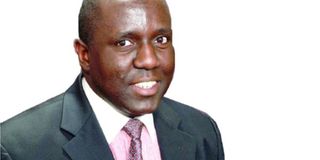Tax oil inquiry exposes how easily oil revenue can be mismanaged

Karoli Ssemogerere
What you need to know:
- The third model we have in Uganda is a “weak-fund” model. A “rainy-day” fund so to speak. It operates on an illusion that government in its wisdom can decide when to “raid and rain” for the public good.
- The good people at Bank of Uganda have little more to do than smile and execute banking instructions initiated by the ministry of Finance. And the so-called parliamentary approval where necessary can be procured retrospectively after the fact.
In professional circles, when we describe a fund as nothing more than a special purpose account, eyebrows are raised. It’s popular to describe a fund in more glamorous terms, buildings, people, structures and policies.
The Uganda Petroleum Fund has turned out to be just another checking account opened by the Ministry of Finance in Bank of Uganda. It carries a shilling and dollar denomination. The principals as is the case with government accounts may only draw on it with parliamentary approval, but these approvals run within the gamut of hundreds of appropriating lines in the budget that they are subject to mischief.
In the case of the Petroleum Fund, it has now come to light that the revenues collected so far are highly drawn. Last year, government sought to withdraw most of the rest to meet an expenditure shortfall in the works budget to complete Hoima-Kaiso-Tonya road. Is it time to look at other models before running the fund becomes a major mischief.
First the legal basis of the fund flows from the nation that these are the products of a sovereign resource. In the 1995 Constitution, government was vested with authority over extractive resources mined from the ground. Mining continues but under licences issued by the government. Royalties are due on mining revenue and so are other taxes levied on production and transfer of assets including capital gains tax. The second notion is that this revenue is excluded from the “general fund” used to finance government comprised of recurrent and development expenditure. Third is that this revenue is used for the “public good”. In Uganda this has been a problem as too many items are tied to this fund. In 2011, the Governor of the Central Bank Tumusiime Mutebile disclosed that he had to incur certain expenditures to acquire military hardware. In 2017, the story is the same as drawings continue on this account with or without parliamentary approval.
Two broad ideas can help change this state of affairs. First is the Alaska Sovereign Fund. This fund comprises of oil royalties paid at the state level to the State of Alaska. The Alaska Sovereign Fund pays every man, woman and child resident in Alaska an annual distribution from the fund’s takings. In addition there is a tax benefit as Alaska does not have a state income tax. For lack of better leadership, the people of Bunyoro and Acholi where oil resources may benefit more from a standard pay-out to residents in the districts comprising these regions. These areas have suffered decades of economic marginalisation right from the days of the British whom they ferociously resisted.
The second broad idea is that of a national investment fund. Norway has the best model and many Arab oil producers have variants of this model. The national investment funds “earn” these royalties and reinvest them for the benefit of the state. Creating such a fund would benefit from the NSSF arrangement creating an independent legal entity rather than an “account” in the Central Bank. The investment mandate of the fund may be limited to capital expenditures only set in place by an independent board of trustees.
The third model we have in Uganda is a “weak-fund” model. A “rainy-day” fund so to speak. It operates on an illusion that government in its wisdom can decide when to “raid and rain” for the public good. The good people at Bank of Uganda have little more to do than smile and execute banking instructions initiated by the ministry of Finance. And the so-called parliamentary approval where necessary can be procured retrospectively after the fact.
IMF has been supervising our finances closely after edging us away from a near collapse last year. In their annual commitments to maintain favor, ministers of Finance from borrowing countries often propose how they are going to raise, rationalise these funds to avoid debt default. No law prohibits these internal transfers.
Mr Ssemogerere is an Attorney-at-Law and an Advocate. [email protected]




